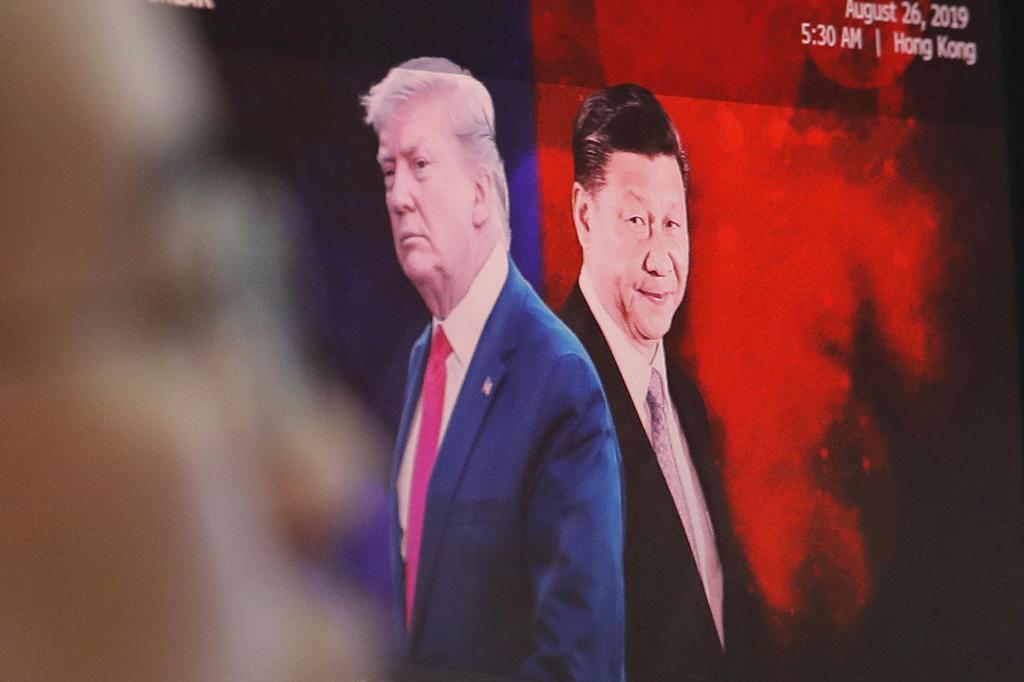"We have brought Donald Trump to his knees!", boasted a commentator on CCTV, the Chinese state television, in a debate about the trade truce reached between the negotiating teams of the United States and China after the two meetings held in Geneva and London. "Our government's resilience forced Trump to give in. The rest of the world should follow our example and not kneel before American abuse and intimidation," added another commentator.
If the spokespersons of Beijing have some reason, it is that the Asian superpower has played its cards very well in recent months in Trump's trade war, starting with its winning hand of the much sought-after critical minerals, vital resources for new technologies that China, which dominates their processing and supply, has used to push back Washington. Chinese authorities began in April to impose new export licenses on their companies, which alone control 92% of the world's refined critical minerals.
While China has been counterattacking every trade blow from Trump, in the European Union (EU), traditional allies of the US, have preferred to keep a lower profile and bet on long and silent negotiations, which the US president thwarted over the weekend by announcing that he would punish the bloc of 27 nations with extensive tariffs if an agreement is not reached before August 1.
"The 30% tariff announced by Donald Trump would have a huge impact, making it almost impossible to continue current transatlantic trade," acknowledged Maros Sefcovic, EU Commissioner for Trade, who also revealed that his negotiating team believed they were close to ending the trade war after spending the last four weeks finalizing a preliminary agreement.
"It's not just that each country is pursuing its own strategy and that, together, they dare not stand up to the abuser. It is also that with these kinds of statements, they publicly expose their weaknesses. In the midst of all global turbulence, what the world needs now is a strong and independent EU," says an official from the Chinese Ministry of Commerce who is part of the team that will receive the Brussels bosses at the end of July for an anticipated summit.
The Chinese official also referred to the words on Sunday of the President of the European Commission, Ursula von der Leyen, who stated that Brussels will continue to refrain from retaliating against US tariffs, at least until August 1, and that the suspension of countermeasures for the levies previously imposed by Washington on steel and aluminum would be extended.
In Beijing, some of the propaganda channels have once again brought back Trump's words at the beginning of the tariff war regarding how many countries were "kissing his ass," referring to allies who were calling him desperately to negotiate tariffs.
"Last week, after Trump announced a new round of tariffs against his theoretical allies in Asia, such as Japan and South Korea, the leaders of these countries once again said they would call the White House to try to rectify the situation. In contrast, in the case of China, all the conversations we have had with the US side have been at their request," boast the Chinese officials, also prone to forgetting the headaches of many of their exporters over these months who depended on the US market and had to juggle - sending their products to third countries before heading to their final destination in the US - to avoid ruin.
Chinese spokespersons began this week euphoric after the latest export growth data exceeded all expectations. Exports increased by 5.8% in June year-on-year, according to customs data. Exports to the US fell for the third consecutive month, with a drop of over 16.1% in June, but the decline was milder than the previous month thanks to the tariff truce reached on June 27, which reduced customs duties on Chinese exports from 145% to 30%. After that, China eased some export restrictions on rare earths, and Washington also lifted barriers on the export of three semiconductor design software companies.
"Our countermeasures against US intimidation not only seek to protect our legitimate rights and interests but also to defend the international order and safeguard the common interest of all countries," declared Lin Jian, spokesperson for the Chinese Ministry of Foreign Affairs, a few days ago.
Economists argue that China's trade growth has remained strong during the first half of the year, despite the brutal exchange of tariff blows with the US, thanks to the increase in exports to other markets in Southeast Asia, the Middle East, and Europe. "Coercion and blackmail have no future," said Wang Lingjun, deputy director of the General Administration of Customs, highlighting that his country had seen an increase in trade with 190 countries during the first six months.
